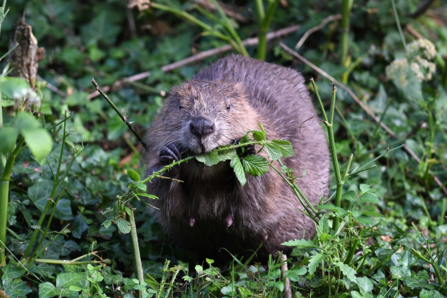
Beaver. Image by: David Parkyn.

Beaver. Image by: David Parkyn.
Northumberland Wildlife Trust welcomes the protections for “nature’s engineers”, calling for sensible management guidance and incentives for landowners to make space for beavers on their land.
Beavers are key to creating thriving wetland ecosystems - which are critical for climate adaptation - and provide a wealth of benefits for nature and people.
Government had promised the legislation would be laid in parliament on Tuesday 19th July but pulled the plug at the eleventh hour, causing uproar among nature charities and the wider public.
The change in legal status will make it an offence to deliberately capture, kill, disturb, or injure beavers, or damage their breeding sites or resting places - without holding the appropriate license. The legislation is scheduled to come into force in the autumn.
In parallel, Natural England is developing guidance on the management of beavers, setting out which actions will or will not require a licence, and where people can go for advice.
Mike Pratt, Northumberland Wildlife Trust Chief Executive says:
“We’re delighted to see the Government give beavers the vital protections they deserve. It is important that guidance is now developed quickly to bring farmers and landowners on board with reintroductions of these brilliant animals, providing reassurance and, crucially, incentives to make space for beavers on their land.
“The widespread return of wild beavers can be a game changer for restoring lost wetlands, benefitting all kinds of wildlife, and helping people by holding water back in the landscape, reducing the risk of wildfires and reducing the risk of flooding downstream. Bringing back wild beavers isn’t just a dream, it is a critical part of addressing the climate and nature crises.”
The end of beavers led to the loss of the mosaic of lakes, meres, mires, tarns, and boggy places that they were instrumental in creating.
The Wildlife Trusts are calling on the Government to:
Beavers are a ‘keystone species’ and have a highly positive impact on their environment. The industrious herbivores are native to mainland Britain but were hunted to extinction in the 16th century by people who wanted their fur, meat, and scent glands. The end of beavers led to the loss of the mosaic of lakes, meres, mires, tarns, and boggy places that they were instrumental in creating.
For more information on The Wildlife Trusts beaver reintroduction projects, visit: www.wildlifetrusts.org/saving-species/beavers